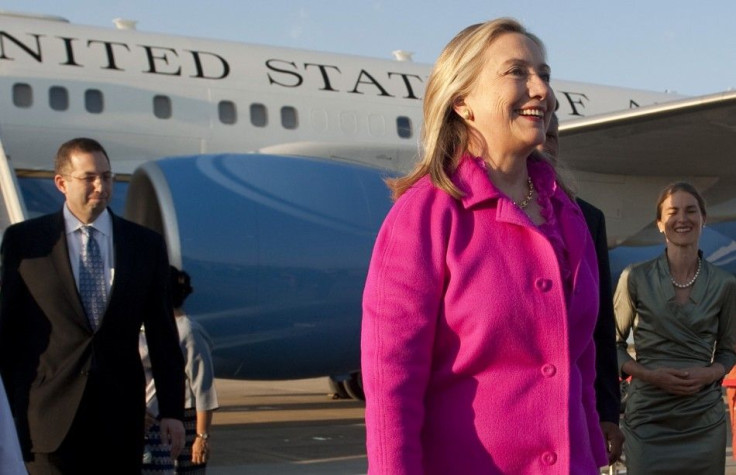Clinton Makes Historic Visit to Myanmar

Arriving in Myanmar on Wednesday, Hillary Clinton became the first United States Secretary of State in more than 50 years to visit the country, also known as Burma.
Clinton's visit is in keeping with President Barack Obama's promise to respond to progress in the country -- and an attempt, if justly deserved, to improve years of bad relations between the United States and Myanmar -- while pushing for more steps to end the military-dominated country's repressive rule.
Speaking in Busan, South Korea before flying to Myanmar, Clinton said the U.S. hoped the initial steps of progress would be ignited into a movement for change that will benefit the people of the country.
I'm looking to determine for myself and on behalf of our government what is the intention of the current government with respect to continuing reforms, both political and economic, she said.
Over the course of the next two days, Clinton will meet with Myanmar's leaders, including President U Thein Sein, Foreign Minister Wunna Maung Lwin, and members of both houses of parliament. She will also meet with opposition leader Aung San Suu Kyi, who, until last year, had been under house arrest for two decades.
We expect this to be a very thorough review of not only the steps that they have taken and what we expect to see in the future, but the things that the United States is prepared to do in response not only to these preliminary steps, but what might be possible if the process of reform and openness continues, a senior administration official said.
The last, and only other trip by a U.S. official to Myanmar, was in 1955, by former Secretary of State John Foster Dulles; in 1962 Myanmar's military overthrew a democratically elected government, beginning its international isolation.
The past few months, however, have been witness to the most dramatic changes in the former British colony since the 1962 coup.
Officials have relaxed the state's grip on the media, released more than 200 political prisoners, legalized protests and labor unions and have held direct talks with opposition leader Suu Kyi, with whom Obama spoke before announcing he would send Clinton, ABC News reported.
She was very encouraging [about] this trip, a State Department official said. Very supportive of efforts the United States is taking, thought that we have handled things exactly right, and has made some suggestions of some steps that she believes that we should take in order to support the reform effort, but also has suggested certain things that she thinks are still premature, which we agree with.
Suu Kyi reportedly still opposed lifting economic sanctions, which the Burmese officials have been pushing for, but officials declined to specify what steps the opposition leader recommended.
If an improved relationship with Myanmar -- still referred to as Burma by the opposition and the U.S. -- can be achieved, it affords the opportunity to alter American diplomacy in the region as the Obama administration attempts to shift its focus toward Asia, in an effort to loosen China's influence over the country, The New York Times reported.
© Copyright IBTimes 2024. All rights reserved.





















